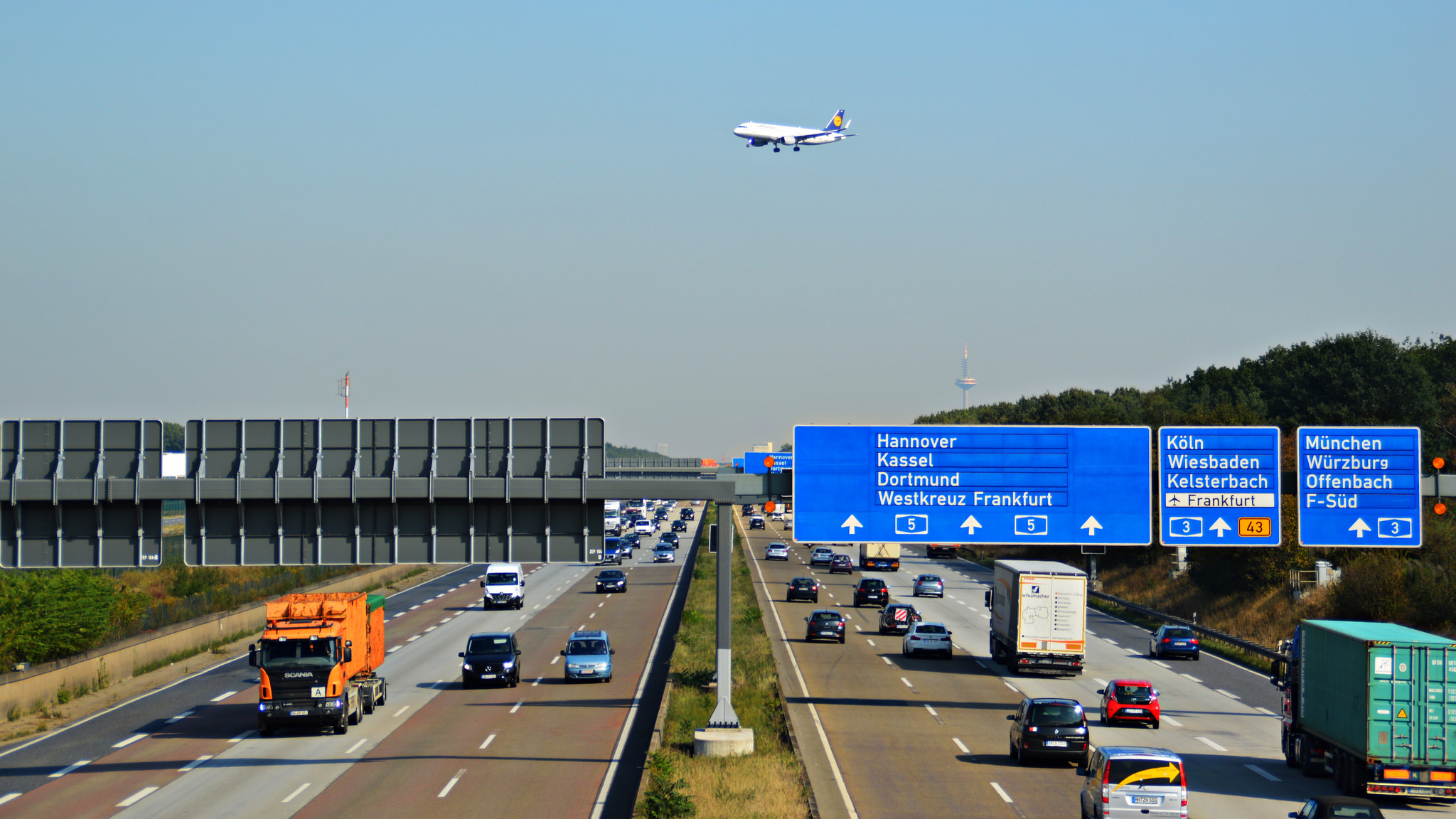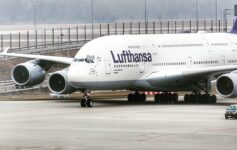Hoping to dissuade passengers from engaging in the practice of hidden city ticketing, Lufthansa is suing a passenger for skipping a flight from Frankfurt to Oslo. I’m betting the lawsuit is going to backfire.
With stiff competition from Norwegian Airlines, some of the best deals in Europe to destinations around the world originate in Oslo. One German man noticed that he could save over $2,000 by booking Oslo – Frankfurt – Seattle – Frankfurt – Oslo instead of Berlin – Frankfurt – Seattle – Frankfurt – Oslo. So he booked it, paying ~$716 instead of ~$3000. On the way back, he simply skipped the Frankfurt to Oslo flight and bought a flight home to Berlin. This practice is commonly known as hidden-city ticketing or throw-away ticketing.
Lufthansa, arguing that this action contravened the mutually-agreed upon contract of carriage, is suing the passenger. Lufthansa lost the first round in court because it failed to clearly clarify how it arrived at its final demand of €2,112, which includes the difference in fare plus interest. But now Lufthansa has appealed.
I’m not going to make an extended argument for or against “hidden city ticketing” here. Kyle did a nice job of arguing both sides of the issue in the context of a similar controversy on United Airlines last October.
> Point: United Has Every Right To Demand Customers Pay For Hidden-City Tickets
> Counterpoint: United: Hidden-City Customers Don’t Owe You A Dime
I will repeat my bottom line, though–
The whole concept of charging more for A + B than A alone strikes most as counterintuitive, including me. I certainly understand why United charges a premium for A alone if it is a nonstop flight. But if someone is clever enough to save some money by tacking on B and willing to take the attendant risks of doing so, more power to them.
This remains my position. I discuss the “attendant risks” in more detail below.
> Scary: United Seriously Threatening Passengers Who Skip Flights
Lufthansa Will Lose, Even If It Wins
I do not think Lufthansa will prevail. Instead, I think a court will rule that hidden city language in the contract of carriage represents an unenforceable contract of adhesion. The court will argue that passengers have no reasonable or even logical expectation that they will have to pay so steep a penalty for not taking all of their flights.
But even if Lufthansa wins, it will lose. Think about the all the publicity this lawsuit is bringing to the issue of hidden city and throw-away ticketing. Widespread news about hidden city ticketing this week may indeed scare people away from engaging in this practice. But I suspect it will embolden far more to do it. Many have now been introduced to the concept for the first time. And let’s face it, it is kind of tough to pay 300EUR for London to Frankfurt when you can pay 100EUR for the same London to Frankfurt flight with a connection to Milan. It’s worth the risk for most people.
Lufthansa, which charges exorbitant change fees and is one of the most inflexible airlines when it comes to schedule changes, will not find sympathy from the public for this lawsuit. Quite the contrary, this lawsuit will be a PR black eye for the German airline. Across the industry, hidden city ticketing has come to represent a small way passengers can “level the playing field” against behemoth airlines. This practice will only proliferate.
How Lufthansa Can Crack Down On Hidden City Ticketing
Lufthansa has three primary ways to discourage hidden city ticketing. First, it can refuse to “short-check” bags to an intermediate stop, making it impossible for any passenger to travel with a checked bag when skipping a flight. Second, Lufthansa already cancels the remainder of segments when one is missed. So if you book Dublin – Frankfurt – New York – Frankfurt- Dublin and skip the Dublin to Frankfurt flight, the rest of your itinerary is instantly cancelled. That means only the last segment(s) can realistically be skipped, diminishing the value of many strategic booking opportunities.
Lastly, and most importantly for any passenger of long-term value, Lufthansa can cancel the Miles & More account or ban the passenger from flying Lufthansa. I tend to think that would be a wake-up call to many. It’s rather tough to live in Berlin and never travel on Lufthansa…
So Lufthansa already has tools at its disposal to combat the practice of hidden-city ticketing. To sue a passenger strikes me as highly counterproductive and frankly petty.
CONCLUSION
The hub and spoke systems of network airlines makes hidden city ticketing worthy of concern. But airlines should just understand that it part of the cost of doing business. Making threats or filing lawsuits against passengers will backfire.
Lufthansa may win the battle, but it will lose the war.
What do you think about Lufthansa’s lawsuit?
image: Tobias Nordhausen / Flickr (CC 2.o)





You’ll either have to find a very friendly or inexperienced check in agent to have your bags short checked anyway. In my experience the only way to get around that is to book a 23 hour layover. And anyone who includes his FF# with a hidden city ticket is just asking for trouble.
Well the general consensus is that LH is looking for a win that would become precedential within Germany (and possibly the whole EU). Now that would be something (and well worth the negative publicity)! Of course, it could cut the other way…
LH is certainly looking for that and probably chose the right passenger based upon the venue. Still, I think LH is on shaky legal grounds. We’ll all be watching closely.
We should give briefs as a friend of the court. Actually you should since you are a big shot lawyer.
I fly a lot with fuel dumps. not with Lufthansa (but ie united is one of the easiest airline to fueldump), mostly on oneworld and skyteam airlines. I have never been denied boarding, nor closed miles account or banned from airlines. But I have 2 firstnames, and I am using only one of them, so I’ll just ask for a new passport, and use my other name in case of banning from any airline.
Technically back in the old days, the whole fuel surcharge stuff was created to avoid taxes. If airlines can do that, why couldn’t I?
About hidden cities, its the same. They are maximizing revenue with insanely high prices on selected routes. If there’s any method to reduce that, just do it.
I just read the court document (not a legal professional): The court holds that in principle Lufthansa can recalculate the price of a ticket to protect its fare structure as long as it does so in the most transparent way possible for the client. This has been already determined by the Bundesgerichtshof in BGH NJW 16, 1575, the highest court for civil law in Germany, therefore it is not on shaky legal ground. Thus at issue for the lower court is not that LH recalculates, but that it did not do so in a transparent way. In Germany, airlines can recalculate the ticket price as long as they inform you at the point of your decision to change your itinerary of how much the change will cost you. Then it is permissible.
Decision of the court: https://www.franz.de/fileadmin/user_upload/urteil_ag_mitte_anonymisiert.pdf
So when someone skips a segment, is the burden on Lufthansa to notify the client of the change in cost in a timely fashion?
No – the information must be accessible to the client but LH must not do its utmost to inform the client. It must be transparent and accessible so that the client knows how much he‘ll have to pay if he cares for it. And the court requires a limit on how much a client is asked to pay after the change (e.g. intra Germany 500€; intra Europe 2000€; global 10000€ – figures by me, will obviously depend on fare class & distance). But the fact that LH can recalculate and increases the price in case of itinerary changes is not disputed by this ruling and has been upheld.
I don’t know German law, but there is no U.S. state in which a contract would be deemed unenforceable merely because it is a contract of adhesion. Our modern economy runs on contracts of adhesion. However it may be a factor in determining that the contract is unenforceable (I.e., procedural unconsionability).
I would still like if you could do a post about an average contract of carriage so you can inform us about what we are actually agreeing to when we buy an airline ticket.
Correct. The adhesion contract itself does not make it unenforceable, but I do not think it will be held enforceable.
In the continental European legal system (civil law as opposed to common law), adhesion contract clauses can be held unenforceable if they are abusive by reference to the imbalance created between the supplier of the service/goods and the buyer. If the supplier is a large corporation, and if it places an untenable burden on the consumer that is incommensurate to the gain obtained by the supplier, then a court can rule the clause to be abusive and declare it null & void.
On the topic of hidden city ticketing, the Spanish Supreme Court held in November that Iberia’s contract clauses that allowed it to cancel a passenger’s ticket if they missed any connection on it were null and void on these grounds.
I once called LH to inquire about a one-way fare from Ukraine to NYC, and was quoted $2900. I asked the agent >
Me: so much?
A: “one way is always more then round trip”
Me: so do for me a round trip
A: “when do you want to return?”
Me :never, you said it’s cheaper, I’m not going to fly it
A: “ok it’s $600”
The same happens with trains here in the UK with a return ticket or hidden city tickets being much cheaper.
I may sound naive but surely it works in airlines favour as they don’t have the extra weight of the passenger to carry saving on fuel.
I agree with you, I think LH will loose one way or the other . Between the Iberia case and this, EU courts will eventually protect consumer interests in the case of throw away tickets. It’s just very hard to make a common-sense case why passengers should pay a fortune for not flying their itinerary…
Matthew, how do you think the recent ruling in Spain that specifically allows skipping any portion of a multi segment trip will affect this case?
Boycott. The only language they understand …
I have long used this tactic to Europe. For years actually. A few things I always do though:
1. Never a r/t. Always a one-way from the U.S. and the last segment is the throwaway.
2. If ever questioned or confronted afterwards (which I never have been) my argument is to simply say I got sick during the connection and had to find a room to sleep. (I mean, are they really going to argue with me on that?)
3. Never check a bag. Short-checking rarely works so only do carry-on’s.
Interesting that this case was Oslo as it’s a city I have often used as well. It tends to be one of the best to look at. As well I have also used CPH, BUD, and HEL.
I mean, for all the posturing by Lufthansa (and what may be others soon) they game the system to their benefit in countless ways as well. One good example is luring passengers into 45 minute connections in places like DFW that are virtually impossible to make unless your gates are miraculously next door to each other. Doing this knowing full well that the odds are stacked against the passengers given the 10-minute prior door closing rule. Don’t even get me started, lol.
Of course there are ways (most of us know about) to get around all the cons/negatives:
1. Book one-way.
2. Travel with carry-on bag only,…. do not check baggage.
3. Do not enter your mileage number (to avoid loss of membership or can an airline search for you anyway?).
4. Be prepared for any cancelation or diversion – the airline can rebook you to the destination ticketed and bypass your original intention to get off in-between (ie., another airline nonstop).
5. If you can live with all that, how can they really stop anybody from doing this?
This is just stupid. If a dozen eggs costs $3 and a box of 18 eggs costs $2 and I buy the 18 and throw away 6 because I only need 12, are you going to sue me?
On the other hand, if I buy a non-refundable ticket and don’t get to use it, guess who keeps the money?
If a customer buys a product and chooses not to use it, the merchant has no right to interfere. If you put illogical prices on your products and customers don’t follow your logic, that’s your problem.
Excellent analogy.
A travel ban is not possible under German law
Do Europeans hate their airlines as much as we Americans hate ours?
To me this seems like getting sued by a restaurant for leaving leftover food on your plate, ridicilous
I really don’t see the big deal they got their money up front if the person doesn’t wish to continue the flight the airlines still made their money. I don’t think they should be able to dictate if you get off the flight.
Then don’t RIP off your customers…they don’t make billions..
First, I think you’re right, this will backfire. It’s awful press and it exposes the HC practice – a lot.
But I don’t see how LH could possibly win this unless they had some sort of cost-based pricing model, and even then, as others mention, the 2nd flight is just a bit lighter and there’s one less person to attend to so there’s no cost increase to LH. So their argument is essentially that the man should have valued the nonstop flight more, and therefore paid much more money for it, instead of examining all of their offers and finding something that suited him better, for less money? And because he didn’t do that, now they are going to sue him for the price difference? For something he didn’t buy? How can you sue someone for something they didn’t buy from you? That’s a business I need to be in!
WTF?!?
A business suing it’s own customers. Brilliant strategy.
Why not? Look how well it worked out for the music industry.
Question: Lufthansa is charging this individual €2,112 for not sitting in his seat on the flight from Frankfurt to Oslo. Does this imply that Lufthansa left that seat unoccupied for the flight?
I am pretty sure as this individual did not check in, Lufthansa, cleared their stand-by passengers and put a butt in that seat.
The routes compared make no sense. There has to be a mistake there.